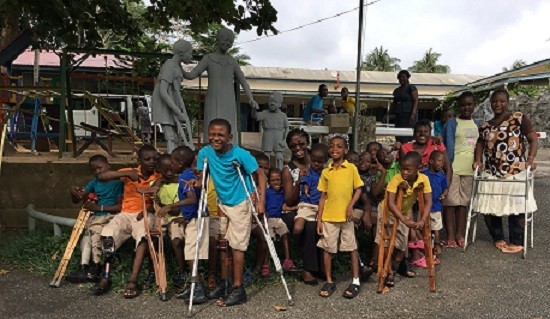
The World Health Organisation (WHO) and the United Children’s Fund (UNICEF) have jointly decried the inaccessibility of almost one billion children and adults living with disabilities to assistive products, such as wheelchairs, hearing aids, or apps that support communication and cognition. The health agencies noted that this practice is prevalent in low- and middle-income countries where access can be as low as 3% of the need for these life-changing products.
In a new report released by both health institutions, it was revealed that more than 2.5 billion people need one or more assistive products, but nearly one billion of them are denied access. In bridging this gap, the WHO and UNICEF call on governments, industry, donors and civil society to fund and prioritize access to assistive products.
Assistive products are generally considered a means to participate in community life and in wider society on an equal footing with others; without them, people suffer exclusion, are at risk of isolation, live in poverty, may face hunger, and be forced to depend more on family, community and government support.
The new report titled: The Global Report on Assistive Technology, indicates that the number of people in need of one or more assistive products is likely to rise to 3.5 billion by 2050, due to populations ageing and the prevalence of noncommunicable diseases rising across the world. It also highlights the vast gap in access between low- and high-income countries. An analysis of 35 countries reveals that access varies from 3% in poorer nations to 90% in wealthy countries.
According to the WHO Director General, Dr Tedros Adhanom Ghebreyesus, “Assistive technology is a life changer – it opens the door to education for children with impairments, employment and social interaction for adults living with disabilities, and an independent life of dignity for older persons.
“Denying people access to these life-changing tools is not only an infringement of human rights, it’s economically shortsighted. We call on all countries to fund and prioritize access to assistive technology and give everyone a chance to live up to their potential”.
Affordability is a major barrier to access, as noted in the report, as nearly two thirds of people with assistive products reported out-of-pocket payments for them. Others reported relying on family and friends to financially support their needs.
UNICEF Executive Director Catherine Russell, said “Nearly 240 million children have disabilities. Denying children the right to the products they need to thrive doesn’t only harm individual children; it deprives families and their communities of everything they could contribute if their needs were met.
“Without access to assistive technology, children with disabilities will continue to miss out on their education, continue to be at a greater risk of child labour and continue to be subjected to stigma and discrimination, undermining their confidence and wellbeing”.
A survey of 70 countries featured in the report found large gaps in service provision and trained workforce for assistive technology, especially in the domains of cognition, communication and self-care. Previous surveys published by WHO note a lack of awareness and unaffordable prices, lack of services, inadequate product quality, range and quantity, and procurement and supply chain challenges as key barriers.
The report further highlighted the merits of assistive technology, noting that the positive impact of assistive products goes beyond improving the health, well-being, participation and inclusion of individual users – families and societies also benefit. For example, enlarging access to quality-assured, safe and affordable assistive products leads to reduced health and welfare costs, such as recurrent hospital admissions or state benefits, and promotes a more productive labour force, indirectly stimulating economic growth.
Access to assistive technology for children with disabilities is often the first step for childhood development, access to education, participation in sports and civic life, and getting ready for employment like their peers. Children with disabilities have additional challenges due to their growth, which requires frequent adjustments or replacements of their assistive products.










